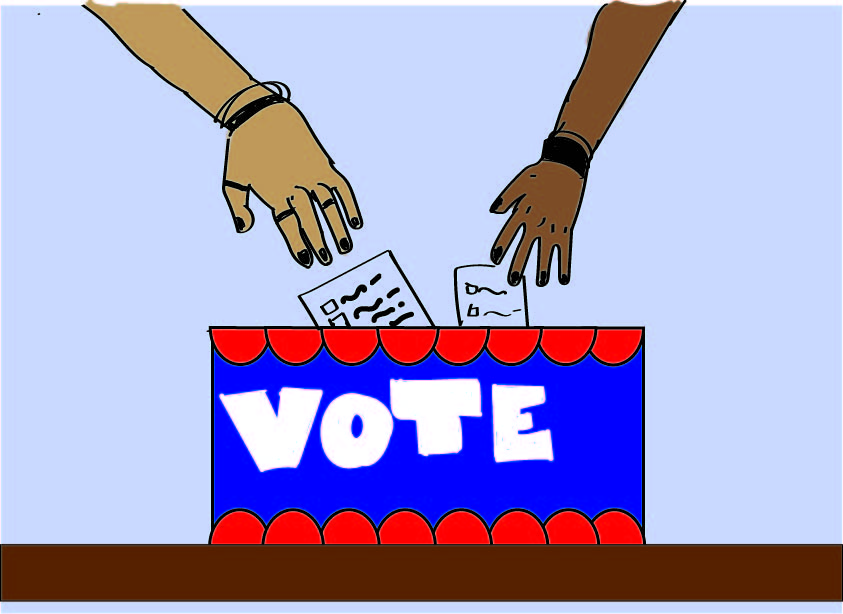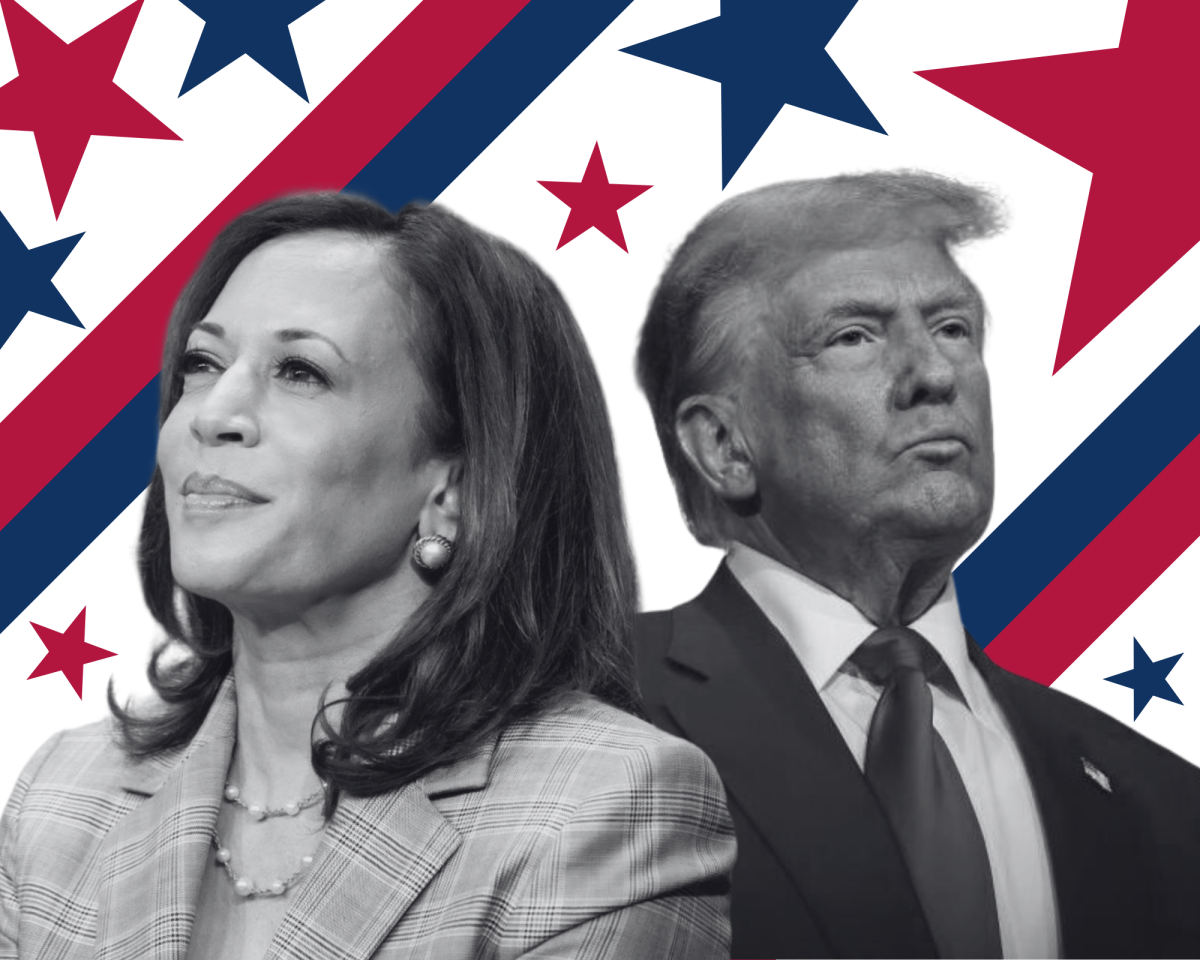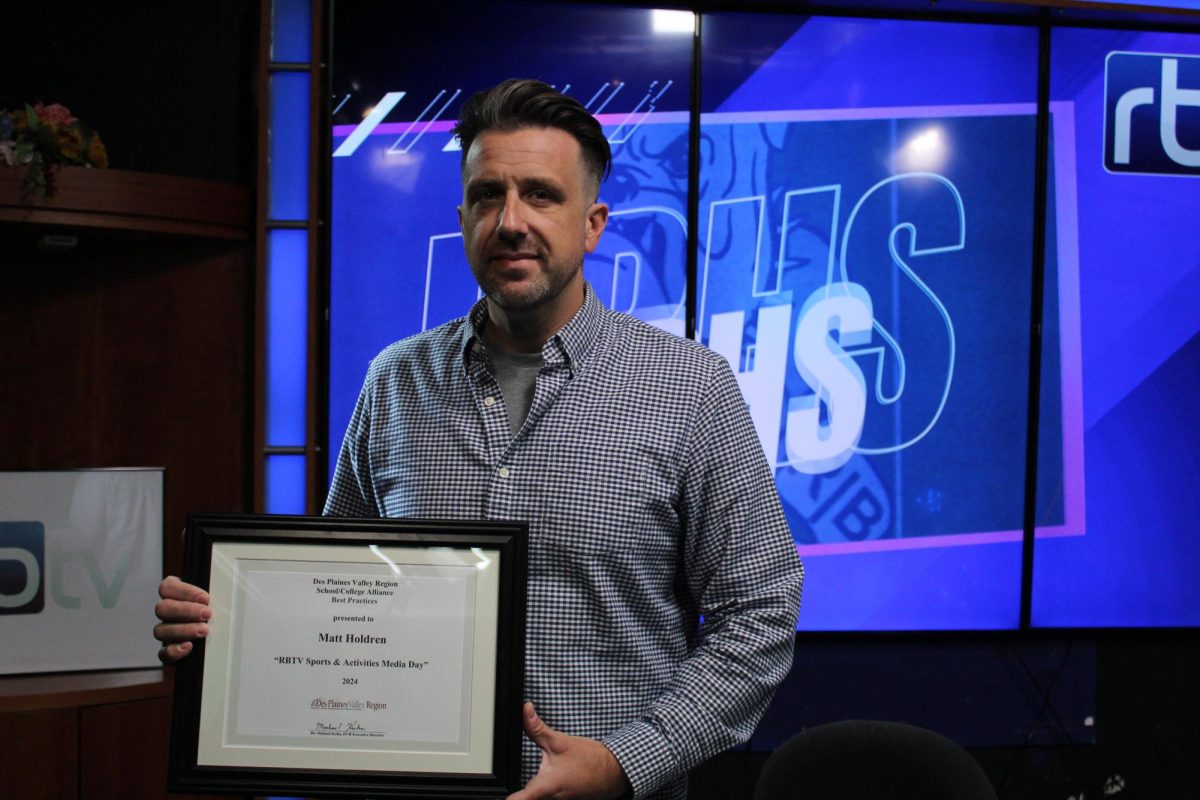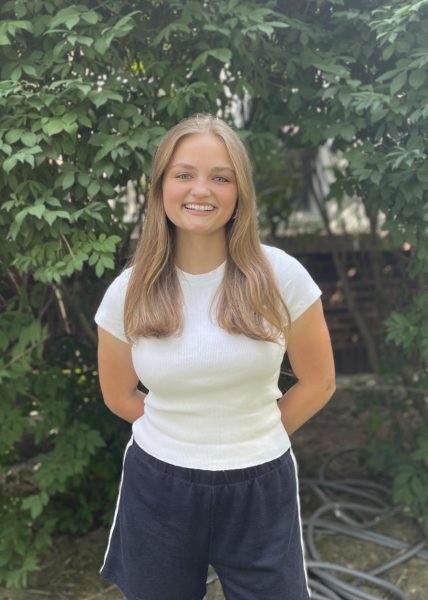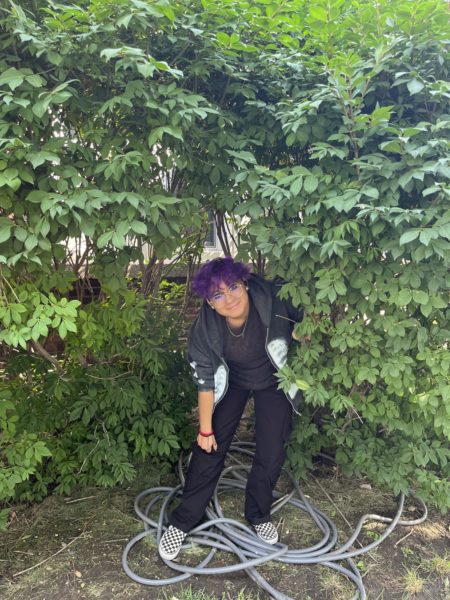Editors note: This article was previously published in volume 92, issue 2 of the Clarion hardcopy.
This past Tuesday, March 19, 2024, the Illinois Presidential Primary Election took place. The majority of the Riverside Brookfield High School student body will be ineligible to vote in the upcoming general election, which will ultimately choose the next Chief Executive of the United States, due to the voting age being 18.
RB students and staff recognize the importance of young people’s role in the political process, even if they are unable to vote at the polls.
“I think voting is a great place to find an entry point into politics, but I don’t really think anyone should stop there. There’s many other ways to get involved,” senior Atticus Flassing said.
For youth getting acquainted with politics in the United States, staying educated on current events and government affairs through reliable sources is a way to begin their political expedition.
“I think you can use tools, even through social media or various news sources, to understand the political climate and issues that you may feel passionate about so that you have an unbiased opinion,” sophomore Mirabelle LoPresti said.
Campaign involvement, local government meetings, and student election judging can be a more hands-on and direct approach to getting involved. Participating in local political affiliated events can serve as an immersive educational opportunity.
“I’ve actually been a student election judge a few times. It’s a great experience. I feel like it gives you a little bit of insight as to what’s going on when you’re voting,” senior Patrick Hart said.
Another course of action students are taking is motivating those around them that are able to vote to head to the polls. Junior Carly Brush believes that welcoming conversation about politics is one way to prompt an increase in voter turnout.
“I think just talking about it with other people is good,” Brush said. “Talking about the election, hearing everyone’s opinion, [and] talking about what we think is best.”
Sophomore John Decker recalls prompting his brother to turn in his ballot, reminding him of the unique privilege of casting a vote.
“My brother, he didn’t really vote. I was just talking to him about current topics and such, and he doesn’t really get into politics, so I was like, ‘You have a lot of interesting opinions about these things, so if you want to change what you think is wrong with the world, you have to vote on it and voice your opinion,’” Decker said.
A possible cause for this lack of enthusiasm towards voting is the uncredited assumption that one vote cannot make any substantial difference in an election.
“Whether you think your voice matters to a party or not isn’t what should prevent you from voting. In fact, that should really just encourage you to vote: to show the country as a whole, and our government, what you do care about and just be a part of that change, instead of waiting, waiting for it to happen,” Flassing said.
Flassing has recognized a current trend of apathy towards politics within his community but disagrees with the assertion that politics is insignificant.
“It’s [politics] really just the system in how we distribute power and how we use that power, so being active in politics, I think, is really important. Regardless of who you are, where you are, or what you want to do in your life, politics is going to be part of it, so you should definitely get involved and get informed as early as you can, I’d say. Because from the time that you’re born to the time that you kick the can, politics are going to be a foundational part of the way that you’re living your life, whether you realize it or not,” Flassing said.
Rather than treating politics as a source of stressful annoyance, embracing it as a vessel for positive change can be an alternative way of viewing the process.
“If you want to have a say or an opinion on government, you have to vote if you can. I believe you have to be part of the process and part of the solution.” RB U.S. History and Sociology teacher John Fields said.
RB U.S. History and U.S. Government teacher Dan Monahan’s first time voting was in the 1992 presidential election between Bill Clinton and George H.W. Bush. He recalls his early passion for politics.
“It’s probably what led me to become a history teacher in the first place. But as I get older, I think it’s more a sense of obligation. You start to realize that it’s important to vote just for the sake of voting for your own personal participation even if you don’t necessarily think your vote is going to matter one way or the other,” Monahan said.
RB offers both standard U.S. Government and AP U.S. Government & Politics. Either class provides a credit that is a graduation requirement that students typically take their senior year. This course not only serves as a useful tool for students to get to know the political process in which they will be partaking in, but also to develop their own political identity.
“I hope that out of that government class, I can better understand how the United States government is shaped, how it functions, how the people are involved, and in what ways they aren’t. So that if I go into policymaking or law, I can help make those changes, and I can help adjust the system to better suit the people,” LoPresti said.
One of the main focuses of both courses is to learn the differences between the United States’ political parties, a topic which is explored through current events.
“Whether it is abortion, or the environment, or the war in Gaza, you know, any kind of current events, which while they break along party lines, just to help them kind of develop a little bit of a political identity for themselves. So, hopefully, by the time they leave the class after a semester, they have a much better idea of where they line up,” Monahan said.
The RB Social Studies Department continues to encourage eligible students to register to vote. In the meantime, students are being equipped with knowledge that will help them make their voting decisions.
“While it is fun to learn how the government works and why it was designed to work that way, my favorite parts of government class are the class discussions on the controversies within government,” Flassing said. “Just the nuanced ways that the government try to address it [and] try to address societal, economic, and political problems are really what I look forward to most in the class.”
Fields tries to convey to his students that history can be used as a tool to navigate the present.
“I love to teach the idea that history helps us understand the present. And so if we want to know what’s going on now, we have to go back and know the past. And so I try to relate past events as much as I can to what’s currently going on, so kids and students can see the connections between the two because that’s really why I think history is important,” Fields said.
Current polarizing events and issues serve as a motivator for adults to vote and persuade others to perform their civic duty when they come of age.
“I feel like Gen-Z is very focused on social and human rights issues,” Hart said. “Issues like race, or gender inequality, or abortion, like those stuff are very motivated to get people to vote because it does. People feel like it directly impacts them. So I just want to be able to—whether it’s with my friends or people who I meet during discussions for other clubs—I want to be able to motivate them and show them a different perspective. But also encourage them. Even if they disagree with me. They should take part in helping our country make policies that they want to see or change they want to see.”
The upcoming generation holds a passion for making positive change within their community.
“I feel that the younger generations can bring a lot of valuable opinions to the table,” LoPresti said. “I feel that my voice, you know, even if it is just one vote, can make a difference.”

